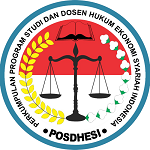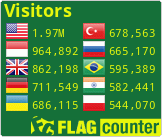Manajemen Zakat Fitrah pada Masa Covid-19 di Kelurahan Simangambat Kecamatan Siabu Mandailing Natal
DOI:
https://doi.org/10.32332/muamalah.v2i1.6804Keywords:
Management, Zakat Firah, Covid-19Abstract
The management of zakat fitrah during the Covid-19 era is something new. There is a shift from manual to digital patterns. This research wants to see how the management of zakat fitrah in the Simangambat Village, Siabu District during the Covid-19 period. The method that used in this research is descriptive qualitative method, namely by describing the management patterns carried out by zakat managers in the Village. There is a shift in the management pattern of zakat fitrah in Simangambat Village, Siabu sub-district, Mandailing Natal Regency. Before Covid-19 broke out, zakat was distributed manually door to door in the pre-Covid-19 era, namely directly distributed to Mustahik's house by Amil. Meanwhile, during the Covid-19 period, zakat was paid by transfer to an account (digitally) in the form of money for those who have accounts recorded in the Kelurahan Government database as zakat fitrah managers.
Downloads
References
Downloads
Published
Issue
Section
License
Copyright (c) 2023 Jureid Jureid

This work is licensed under a Creative Commons Attribution-ShareAlike 4.0 International License.
All articles in the Mu'amalah: Jurnal Hukum Ekonomi Syariah can be disseminated on condition that they still include the identity of the article and the source (Mu'amalah). The publisher is not responsible for the contents of the article. The content of the article is the sole responsibility of the author.
Authors who publish this subject agree to the following terms:
First, the Authors retain copyright and grant the journal rights from the first publication with the work simultaneously licensed under a Creative Commons Attribution-ShareAlike 4.0 International License that allows others to share the work with an acknowledgement of the work's authorship and initial publication in this journal.
Secondly, the authors can enter into a separate or an acknowledgement of its initial (e.g., post-institutional repository or publish it in a book) publication in this journal.
![]()
Third, the authors are permitted and encouraged to post their work online (e.g., in institutional repositories or on their website) before publishing work is cited.








